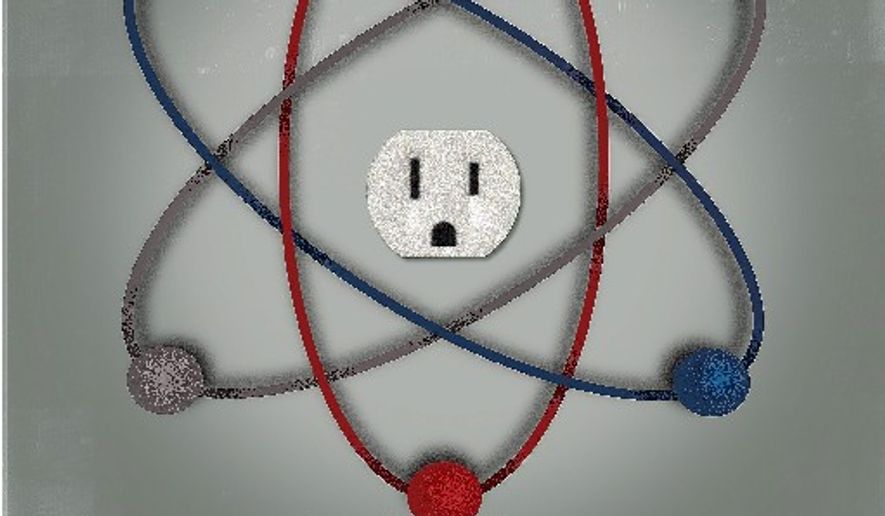OPINION:
It appears that North Korea is close to achieving its ultimate goal — de facto acceptance as a nuclear weapons state, while on a path to normalize relations with the United States.
The June 12, 2018, Singapore Summit of President Donald Trump and leader Kim Jong-un produced a Joint Statement that committed both countries to the establishment of a new bilateral relationship, while building a lasting and stable peace regime on the Korean Peninsula. It also committed North Korea to work toward the complete denuclearization of the Korean Peninsula.
Unfortunately, during the past year, despite a second Trump-Kim summit in Hanoi and a June 30, 2019, historic meeting in the Demilitarized Zone (DMZ) between South and North Korea, there has been no apparent movement on achieving any of the goals cited in the Singapore Joint Statement.
What we’re hearing, instead, is that North Korea may be amenable to a “freeze,” something China and Russia proposed more than two years ago. That proposal was correctly discarded, since the goal was and is complete and verifiable dismantlement of North Korea’s nuclear weapons and facilities.
A freeze doesn’t address the ultimate goal of complete denuclearization. Yes, it could be the first phase on a path to complete and verifiable denuclearization, but if that were the case, then a freeze should be part of an overarching agreement that commits North Korea to complete denuclearization, in return for movement on the normalization of bilateral relations and a peace treaty to end the Korean War, with the ultimate lifting of sanctions imposed by the United Nations.
If Kim Jong-un is serious about economic development for North Korea and improving the living conditions for the 25 million people in the North, many malnourished, then pursuing a normal relationship with the United States is the path he should follow.
And if Mr. Kim understands that securing this type of normal relationship with the Unied States, with inherent security assurances, is achievable only if he abandons his nuclear weapons and facilities, then it is possible and likely Mr. Kim already made this strategic decision, which would explain his initial outreach to the United States and South Korea.
If, however, Mr. Kim believes normalization of relations with the United States is possible without having to abandon all nuclear weapons and facilities, then it’s a no-brainer — that’s what he’ll pursue. And that’s likely what his senior advisers are telling him to pursue, arguing that the United States wants a deal and will relent, as they did with Pakistan, and eventually accept North Korea as a nuclear weapons state.
De facto acceptance of North Korea as a nuclear weapons state would be a nuclear proliferation nightmare. Other countries in the region, definitely to include South Korea and Japan, will feel the need to acquire their own nuclear “deterrent,” regardless of U.S. extended nuclear deterrence commitments. This could then incite a nuclear arms race in the region, with other countries seeking their own nuclear deterrent. Also, the proliferation of nuclear weapons and/or fissile material to rogue states or non-state terrorist organizations is another possibility that will endanger the region and beyond.
A freeze (or halt) to all nuclear tests and fissile material production, and a moratorium on all missile launches, as part of a comprehensive denuclearization agreement with North Korea would be a historic accomplishment. President Trump’s two summits and his DMZ meeting with Mr. Kim made it now possible to secure a comprehensive nuclear agreement with North Korea, something that has eluded us for the past 25 years.
It’s now imperative that North Korea understand that working level negotiations must commence, with the goal of securing a fair and comprehensive agreement that addresses the three stated objectives in the Singapore Joint Statement: Transformation of our bilateral relationship, a peace treaty that ends the Korean War and the complete (and verifiable) denuclearization of North Korea.
Pursuing such an agreement will require flexibility on the part of both countries. An action-for-action approach that guarantees benefits to North Korea as they dismantle their nuclear weapons and facilities will be necessary if we want progress with negotiations. Equally important will be making it abundantly clear that the United States will never accept North Korea as a nuclear weapons state.
Ideally, if working level negotiations start immediately, within the next year we could have a fair and comprehensive nuclear agreement with North Korea. Implementing the agreement could take years, but the success in having an agreement will bring peace and greater prosperity to the Korean Peninsula and the region.
• Joseph R. DeTrani was the former special envoy for negotiations with North Korea. The views are the author’s and not any government department or agency.




Please read our comment policy before commenting.